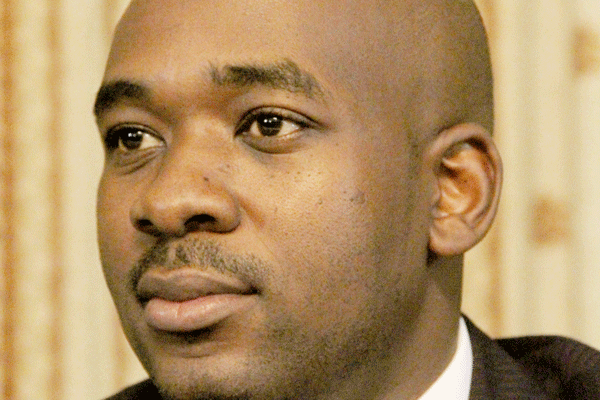
Italian fashion designer Gianni Versace once said that it is nice to have valid competition; it pushes you to do better.
BY NDAMU SANDU

Competition among the country’s three mobile operators — Econet, NetOne and Telecel — is pushing them to go an extra mile in this bruising battle for subscribers.
Until the data tariff furore in which a new floor price for voice and data was announced and later withdrawn following an outcry, subscribers had been consigned to the short end of the stick with mobile operators trampling on their rights.
Subscribers had complained of being short-changed, saying airtime was disappearing from their phones. That was then. There is now a renewed thrust, with operators pledging to offer quality services.
The fight for subscribers is playing out in advertisements as operators take potshots at rivals.
After Econet was forced to discard the floor price for voice and data, Telecel thought it was the perfect opportunity to remind subscribers of its commitment to provide a better service.
“We have and continue to provide low price leadership, including forcing the price of lines down, never converting your post-paid line to pre-paid even in hyperinflationary times and introducing industry game changers like Mega Bonus and number switching. We will continue to work hard and fight for you to get the best value,” it said.
- Chamisa under fire over US$120K donation
- Mavhunga puts DeMbare into Chibuku quarterfinals
- Pension funds bet on Cabora Bassa oilfields
- Councils defy govt fire tender directive
Keep Reading
NetOne, which has seen an increase in subscribers due to its OneFusion package, is going for the jugular.
“If your buddies are not on OneFusion, they are not real buddies,” NetOne said.
“After all, what real friend would not want you to enjoy up to 4 866 minutes of NetOne to NetOne calls, 1 563 minutes to call other networks, 140 international minutes, 750 sms, 18GB of data and monster WhatsApp, Facebook and Twitter bundles?”
Despite controlling over half of the market, Econet is fighting to increase its share, promoting, among others, accessing Facebook on any handset, including those that are not smartphones.
“Whatever phone you’ve got, stay updated on Facebook via *325#. Pay your daily, weekly, monthly subscription of 10c, 50c or $1 respectively and enjoy Facebook,” it said.
The fight by operators over subscribers comes at a time voice calls have been dwindling, threatening the survival of mobile operators.
A report by the Postal and Telecommunications Regulatory Authority of Zimbabwe (Potraz) for the third quarter ended September 30 2016 showed that total voice traffic declined by 3,6% to record 1 149 533 489 minutes from 1 192 571 970 minutes recorded in the previous quarter.
“Net on net traffic experienced the biggest decline of 6,4% and this can be attributed to the discontinuation of a number of promotions in the quarter under review,” Potraz said.
The report said internet and data usage registered positive growth during the period under review. Mobile data utilisation increased by 16,1% to record 2 157 903 415 megabytes (MB) from 1 857 944 258MB recorded in the previous quarter.
Former ICT minister Nelson Chamisa said the competition by operators had brought a positive impact on subscribers. Chamisa said the packages or promotions were sustainable as market forces were at play.
He said the tariffs were, however, still on the prohibitive side compared to those obtaining in the region because Zimbabwe is a landlocked country and as such, does not have access to the undersea cable. So, Zimbabwe needed to handshake with countries that border the ocean, Chamisa said.
He said regulations had to be effective for the growth of the sector.
“For prices to be lower, we must allow regulation on players not the regulation in which the referee chooses to join one team and throws away the whistle,” Chamisa said.
“It’s an issue we have brought to the minister. We don’t want a cat and mouse relationship between government and operators. It’s unhealthy and undermines national economic progress.”
He said acrimony between government and an operator had a negative effect from an investment perspective.
In the outlook, Chamisa said there were brighter prospects for the industry, adding that government had to be ahead in policy making and legislation.
“Instead of dragging technology, we are being dragged by technology,” he said.
It’s not only in Zimbabwe that mobile operators are jostling for subscribers. In Africa’s biggest economy, Nigeria, it’s a dog eat-dog affair between the two leading mobile operators MTN Nigeria and Globacom (Glo). MTN is giving six times the credit a subscriber would have recharged.
“Join MTN and get six times the value of all your recharges to call all networks in Nigeria. Plus free 100MB data on recharge for N200,” MTN said. As at December 2016, MTN had a subscriber base of 61 840 461, giving a market share of 40,12%, according to statistics from Nigerian Communication Commission (NCC). Glo is giving subscribers double the credit they would have used the previous day under its Glo Free Tomorrow promotion.
“Whatever you use today, get double back tomorrow,” it said. As at December 2016, Glo had 37 357 843 subscribers, giving a market share of 24,72%, according to statistics from the NCC.











